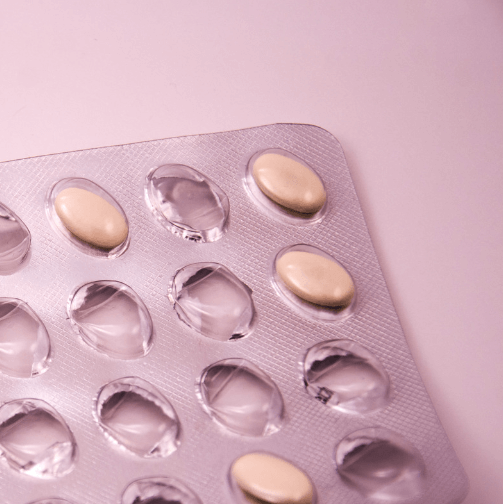Menopause is a natural part of life for women, it is the natural biological process that signals the end of the reproductive years in a woman. Although it is a natural process, it can bring about a significant amount of changes in a woman’s life, this article will discuss everything you need to know about the menopause, including the symptoms that are commonly experienced, its causes, and treatments.
Symptoms of Menopause
Menopause symbolizes the transition for a woman from her reproductive years to the next stage of life, therefore, symptoms of the menopause differ from each woman to the next, but the most commonly experienced symptoms include:
- Hot Flashes
- Night Sweats
- Fatigue
- Vaginal Dryness
- Mood Swings
- Irritability
In addition to these, some women may experience their skin, hair, and nails changing. Hot flashes, and night sweats are the most common out of all the symptoms of the menopause, and can become extremely uncomfortable and disruptive in everyday life, as it causes restless sleep.
What causes the Menopause?
In most cases the Menopause is caused by the natural biological process that happens when women age, with age, ovaries produce fewer eggs, and the production of hormones such as estrogen and progesterone declines. At some point, the ovaries stop releasing eggs, and menstrual periods as a result stop. Marking the end of the reproductive years, and starting the Menopause. However, other factors can contribute to the onset of Menopause such as:
- Chemotherapy
- Radiation Therapy
- Surgical removal of the Ovaries
Managing Symptoms
Attempting to manage symptoms of the Menopause can be difficult, but thankfully today there are many ways to manage its symptoms including hormone replacement therapy (HRT), lifestyle changes, and alternative therapies.


Preventing Health Problems
Associated with the Menopause, increasing risk of osteoporosis, heart disease, and cognitive decline are prominent concerns for women, there are several steps that can be taken to reduce the risk of these health problems.
For Osteoporosis, getting regular exercise can increasing bone density, to further bolster this, making sure that you are consuming a healthy diet, that is rich in calcium and vitamin D, can also prevent Osteoporosis. It is also important to have regular cholesterol tests, to check the levels of cholesterol in the body, and to take the appropriate steps to reduce cholesterol if it is too high. All of these methods, as well as staying mentally active, can help in preventing decline in cognitive function.
Benefits of Menopause Testing
Although a natural process associated with aging, the symptoms of menopause can still be uncomfortable and disrupting to everyday life, menopause testing can help women understand what stage they are at in the process, and what to expect, as well as providing some insight into their overall health.
- Confirmation of Menopause: Testing can confirm if a woman has entered menopause, it is typical for the menopause to be diagnosed after a period of 12 consecutive months without a period. However, other illnesses or medication can impact the cycle, thus, menopause testing that involves measure FSH can confirm if menopause has been reached.
- Treatment Guidance: Testing can help guide the decision to start HRT, the most common treatment option for the menopause.
- Early detection of Health Issues: Menopause testing can provide early detection of health issues, such as osteoporosis, heart disease, and other chronic conditions, allowing for proactive treatment and management.
- Personalised Care: Women experience the menopause differently, while some may only experience a few symptoms, others can suffer significant discomfort. Therefore, menopause testing can help in identifying individual needs and provide personalised treatment plans, including lifestyle changes, medications, and alternative therapies.
- Peace of Mind: Knowing what stage of the menopause you are at, if at all, and understanding what to expect will help reduce the anxiety and stress associated with menopause.
Here at Bioma we offer a wide range of blood tests, including tests for the menopause and hormone replacement therapy.
Our Blood Tests:
-
B12 Vitamin injections – Out of stock
B12 hydroxocobalamin vitamin injections
View more details£23.00
-
Female hormone blood test
Female Hormone Blood Test checks for hormonal causes of irregular menstruation or fertility issues. Can track hormone levels & changes from medical treatment, diet, exercise. Tests for LH, FSH, Prolactin, Oestradiol. One Free online GP appointment included with this test upon request.
View more details£160.00
View details -
Full well being blood test (FEMALE)
This blood test measures biomarkers for full blood count, thyroid function, vitamin D, anemia, cholesterol, diabetes, inflammation, kidney, liver, and heart function, and hormone levels. One Free online GP appointment included with this test upon request.
View more details£469.00
View details -
Hormone replacement therapy (HRT) blood test
HRT blood test measures biomarkers FSH, Oestradiol (17-Beta), Progesterone. This is for those already taking HRT.
View more details£140.00
View details -
Menopause blood test
Menopause blood test measures biomarkers FSH, LH, Oestradiol (17-Beta), TSH, FT4 to indicate menopause.
View more details£160.00
View details -
Thyroid hormone- Free thyroxine (FT4)
FT4 detects proper thyroid function, helps identify hypo/hyperthyroidism, evaluate enlarged thyroid gland, diagnose female infertility.
View more details£50.00
View details
